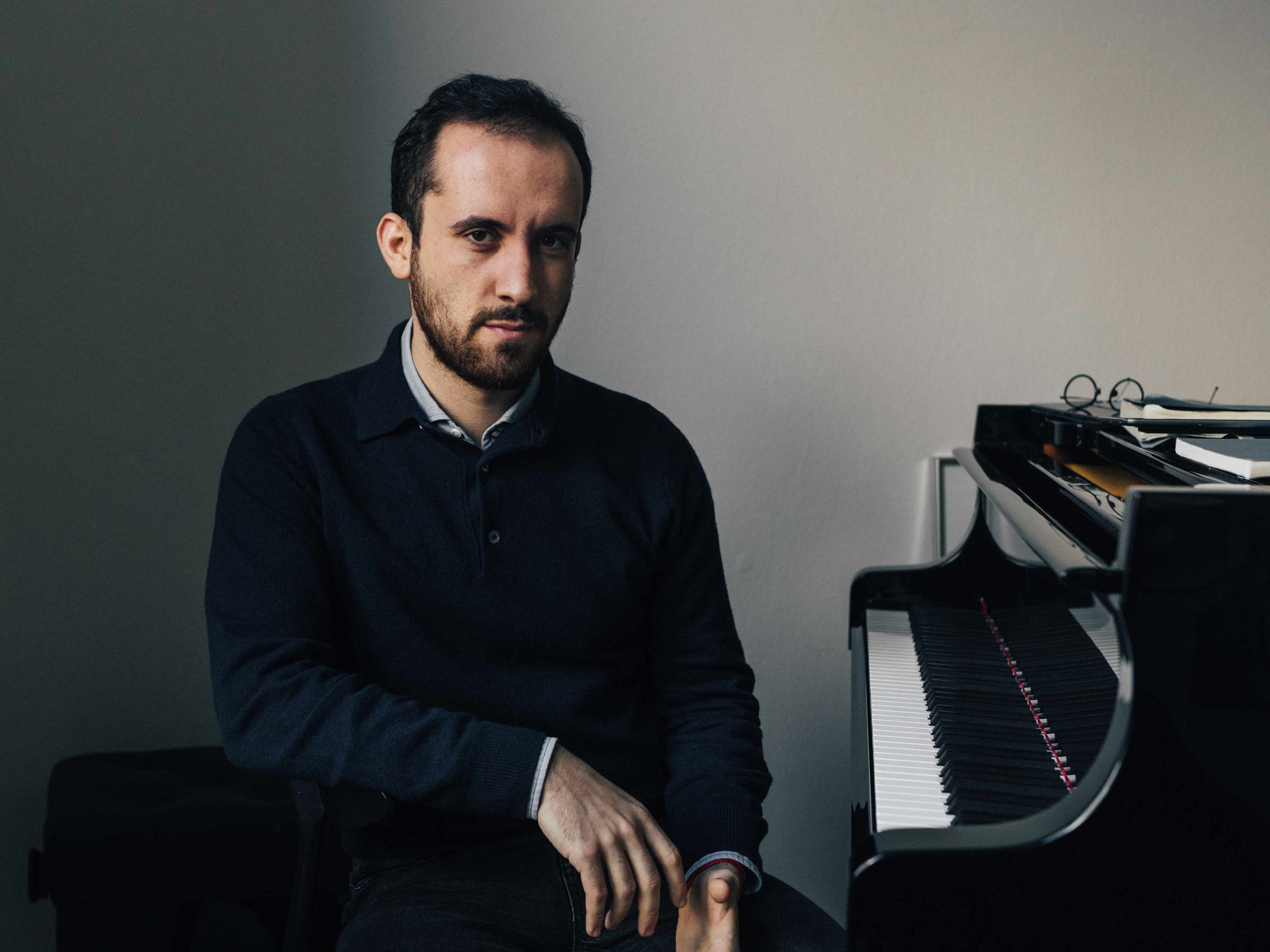2018 Gilmore Artist Igor Levit has said that “permanent curiosity is essential” for him. The pianist dives deep into a concept, and use his towering skill to express it. During the 2018 Gilmore Keyboard Festival Finale on Saturday night, Levit conveyed the curiosity and humanism that is core to his art. He performed together with the Kalamazoo Symphony Orchestra (KSO) under the baton of Raymond Harvey, music director emeritus.
The KSO led the concert program with two works, rich with musical contrasts. The first was Felix Mendelssohn’s “Calm Sea and Prosperous Voyage, Op. 27,” a work set to verses by German poet Johann Wolfgang von Goethe. In the first section, the orchestra made great work of floating the main theme above peaceful chords with a hint of anxiety (calm waters were disastrous in the days of sailing ships). A sprightly flute solo signalled the return of the wind and the hopeful continuation of the ship’s voyage. The strings and woodwinds evoked hectic onboard activity and billowing sails, and the brass section announced the sighting of land with a robust fanfare.
The orchestra then turned to the edgier “Symphony No. 1” by William Bolcom. Muscular and angular in character, the work contains echoes of familiar 20th-century composers — think Igor Stravinsky, Alban Berg and Charles Ives. The KSO’s interpretation captured the thematic dissonance within the piece, from steady and stoic in the second movement to misshapen military marches in the third. An optimistic tune in the fourth movement was swallowed by a building cacophony before the piece’s jarring end. Bolcom, who was listening from the audience, was welcomed to the stage to share in the audience’s warm applause.
For the concert’s second half, Levit joined the KSO to perform Ludwig van Beethoven’s “Piano Concerto No. 4 in G Major, Op. 58.” Critics love to say that Levit is a Beethoven expert, and it might have something to do with his spontaneity at the keyboard. One second, he’s taking your breath away with uncanny fingerwork and ethereal, caressing tones. The next, the floor disappears beneath your feet as he introduces a passage with unorthodox fervor. Avoiding irreverence, Levit’s interpretations celebrate the vast human dynamics within Beethoven’s music.
Levit’s nurturing approach was present from the introductory five bars of solo piano in the first movement. He turned a listening ear toward the orchestra as it took over the theme, raising his eyebrows and smiling slightly at different expressions, and leaning toward the audience as if to invite them to listen as intently. When it came time for him to play again, he lovingly embraced the improvisational soul of the piece. Each accelerating rhythm in the solo part was played freely and immaculately.
While many interpretations of the second movement evoke harrowing discord, the musical argument between the KSO musicians and Levit acquired a more civil tone. The orchestra possessed a more antagonistic character while Levit conveyed gentleness, but in the end it felt as though a healthy compromise had been achieved.
The third movement brought more playful subversion from Levit. He prolonged pauses, and waggled his fingers over the keys before launching into a dizzying cadenza. Even with the vollying commentary between the orchestra and the soloist, the music felt seamless and triumphant through its final chords. The audience, dazed and delighted, gave an avid standing ovation.
For his encore, Levit performed a humorous, graceful rendition of Dmitri Shostakovich’s “Waltz-Scherzo.” The piece is an excerpt from “The Bolt,” a ballet about a conspiracy to sabotage machinery in a Soviet factory. Levit moved the perky introductory melody along idly, as if it were a line of products on a conveyor belt. He then burst into the whirling scherzo, reveling in its movement and color before returning again to the mechanical waltz. Levit’s handling of the contrasts was almost cartoonish, and many audience members couldn’t help but laugh.
Through spacious, crisp performance that explored and reconciled contrasting voices and ideas, Levit and the KSO ended the 2018 Gilmore Keyboard Festival with a hopeful message.
Gilmore Festival Finale
May 12
thegilmore.org





